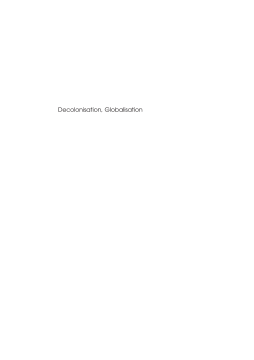
Additional Information
Book Details
Abstract
This volume brings together scholars from around the world to juxtapose the voices of classroom participants alongside the voices of ruling elites with the aim of critically linking language policy issues with classroom practice in a range of contexts. The volume is suitable for postgraduate students, researchers and educators in a range of areas.
The critical construction paradigm adopted by the authors is a very positive and exciting development in LIE-PP studies. I have every confidence that the volume will fulfill its promise to offer not only policy and practice critiques but also practical policy, pedagogy and curriculum alternatives.
Professor Li Wei, PhD, Head, School of Education Communication and Language Sciences, University of Newcastle upon Tyne, UK
Decolonization, Globalization is a must-read for anyone who is interested in issues in language-in-education policies and practices in post-colonial societies.
Nkonko M Kamwangamalu
This is a wonderfully probing volume that takes nothing for granted about the role of English and English language teaching in postcolonial contexts across our globe. Based on their own close ethnographic knowledge, the authors offer critical analyses of contradictions and tensions in real cases of language education planning in these multilingual contexts, and the commentators and editors engage in serious dialogue with them about the cases and the tendencies they reveal. The overall effect is a rousing call -- and some guiding principles -- to construct language in education policy and pedagogy in ways that enable hitherto marginalised groups to grab hold of new possibilities and opportunities as they emerge under the forces of globalisation.
Nancy H. Hornberger, University of Pennsylvania
This book informs us richly about the difficulties and inequalities of education, language choice and life opportunities in complex language communities.
David Cooke, York University, in
An excellent provocative book. As ever, Multilingual Matters keeps up the good work.
Hugo Baetens Beardsmore, Vrije Universiteit Brussel
Angel Lin is Associate Professor in the Department of English and Communication at the City University of Hong Kong. She teaches and researches in the areas of critical discourse analysis, urban and school ethnography, bilingual education, feminist cultural studies and postcolonial studies.
Peter Martin is Senior Lecturer and Director of the Centre for English Language Teacher Education and Applied Linguistics in the School of Education at the University of Leicester. His research interests include bilingualism, bilingual education, language education, classroom discourse and language shift.
The essays in this collection tie together cohesively and make an important contribution to research approaches in LIE and LPP. The critical construction paradigm put forth by Lin and Martin is appropriate, timely and inspiring for ethnographic researchers, educators, and scholars interested in language policy issues and practices in postcolonial and multilingual educational contexts. The diversity of the contributors and contributions is a testament to this volume’s editors, and to the impact that this work will have on future scholars.
Zeena Zakharia, Teachers College, Columbia University
Table of Contents
| Section Title | Page | Action | Price |
|---|---|---|---|
| Contents | v | ||
| Author Biodata | vii | ||
| Foreword: On the Possibilities of a Post-postcolonial Language Education | xiv | ||
| Chapter 1 From a Critical Deconstruction Paradigm to a Critical Construction Paradigm: An Introduction to Decolonisation, Globalisation and Language-in-Education Policy and Practice | 1 | ||
| Chapter 2 Nation-building in a Globalised World: Language Choice and Education in India | 20 | ||
| Chapter 3 Critical, Transdisciplinary Perspectives on Language-in- Education Policy and Practice in Postcolonial Contexts: The Case of Hong Kong | 38 | ||
| Chapter 4 Remaking Singapore for the New Age: Official Ideology and the Realities of Practice in Language-in- Education | 55 | ||
| Chapter 5 ‘Safe’ Language Practices in Two Rural Schools in Malaysia: Tensions between Policy and Practice1 | 74 | ||
| Chapter 6 The Four Language Stages in the History of Iran | 98 | ||
| Chapter 7 Higher Education Language Policy and the Challenge of Linguistic Imperialism: A Turkish Case Study | 115 | ||
| Chapter 8 Language Classroom Practices in Kenya | 131 | ||
| Chapter 9 Language and the Struggle to Learn: The Intersection of Classroom Realities, Language Policy, and Neocolonial and Globalisation Discourses in South African Schools | 153 | ||
| Chapter 10 Language-in-Education Policies and Practices in Africa with a Special Focus on Tanzania and South Africa – Insights from Research in Progress | 173 | ||
| Chapter 11 Accommodating Tensions in Language-in-Education Policies: An Afterword | 194 | ||
| Index | 202 |
